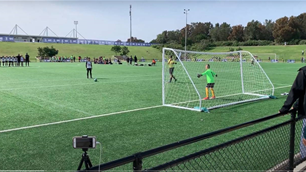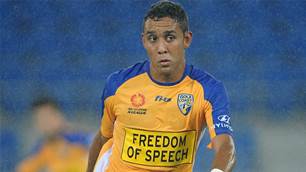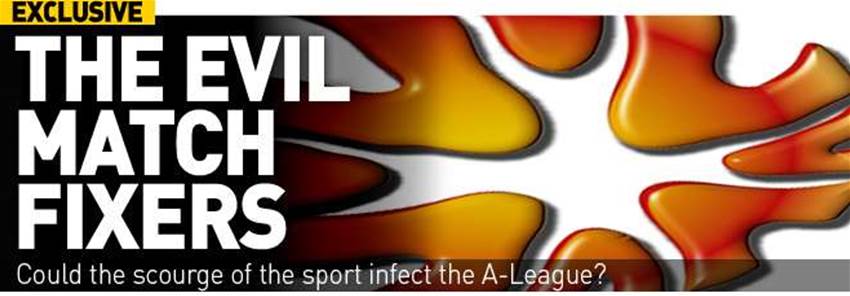VIOLENT gangsters, battered footballers, scared Socceroos and floodlight sabotage – we peer inside the murky world of international match-fixing where the bribery and corruption is more widespread than ever before. Best-selling author Neil Humphreys finds out more...
Going For Europe
Wilson Raj has generally targeted the lower leagues and poorer football associations for obvious reasons. No one is seriously going to try and bribe Wayne Rooney with a paltry half a week’s wages. But if the players can’t always be fixed, the infrastructure can. In November 1997, West Ham were at home to Crystal Palace when the match was abandoned when the floodlights went out with the score at 2-2. In December 1998, the lights went out at Selhurst Park when Wimbledon were playing at home to Arsenal. The score was 0-0. In August 1999, Hong Kong-born Wai Yuen Liu, 38, the London-based match fixer for an Asian syndicate, was found guilty of plotting to sabotage a match between Charlton Athletic and Liverpool in February 1999. His syndicate was involved in all three games. The first two allegedly earned the Asian crime gang around 60 million pounds. The lights only stayed on at The Valley because Liu was caught red-handed at the ground trying to plant an electrical device to sabotage the flood lighting.
Subhas Anandan has known a member of the syndicate since childhood and refers to him in his autobiography as “Pal”. He told me that syndicates agree that if a “force of nature” leads to a game’s abandonment then the score at the time of the postponement stands. When the syndicates are happy with a certain scoreline, they literally pull the plug.
In recent years, Asian syndicates and a rising number of crime gangs from Eastern Europe are brazenly targeting Europe. On 20 November 2009, police and UEFA officials called a press conference in Germany to announce allegations of match-fixing on a massive scale. Seventeen people were arrested in coordinated raids as part of an investigation into a match-fixing ring which affected up to 200 games, including some in the Bundesliga, the Champions League and Europa League pre-qualifying rounds. The fixed games still allegedly involved lesser teams, but the competitions were getting bigger though. Raids were carried out in Germany and Switzerland and there were reports of gangs with Croatian links supplying sedatives to team doctors and hotel cooks in an attempt to drug players.
Is the A-League Immune?
FIFA continues its war on match-fixing, which is proving to be about as successful as the United States’ war on drugs. There will be further raids in the future. There will be further arrests. Domestic leagues across Asia do acknowledge the issue and Singapore’s S-League makes its players take polygraph lie-detector tests.
Match-fixing within Asia’s domestic league is probably not as rife as it was during its heyday in the early 1990s. But it’s difficult to say whether that’s due to an official crackdown or because crime syndicates have benefited from the explosion of cable TV and online gambling and gone global. Why waste time with a Malaysian M-League match when you can pool funds in a joint venture and go for a lesser light in the European Champions League?
The international reach of Asian - and increasingly Eastern European – match-fixing operations raises the obvious question. Is Australia immune? Can A-League matches be nobbled? Certainly, the A-League fits the traditional criterion and ticks the right boxes for a match-fixer. It’s a new fledgling league that flies largely beneath the radar of mainstream media because of the dominance of the other football codes domestically. Wages are also lower than the major European leagues and A-League teams are regularly involved with the Asian Champions League, which includes nations with a patchy record on corruption.
The checklist might be there, but the culture certainly isn’t. “It’s un-Australian,” Ollerenshaw says simply.
There are no documented cases of Asian crime syndicates extending their operations into the A-League, but no league is invulnerable and there are lessons to be learned from Asia. Pay wages; on time and regularly too.
Last year's financial problems at Newcastle Jets demonstrated that clubs walk a tightrope in any new sports league. There is no evidence to suggest any wrongdoing on the part of the Jets, but match fixers thrive on a player’s economic insecurity.
“You can never say never,” Ollerenshaw admitted.
“However, isolated cases are always possible. If players have financial problems, they may be tempted to partake in a fix.”
Australian football’s unblemished track record is a reason to be proud, but certainly not smug or complacent. The A-League may be here to stay. But so are the match fixers.
Neil Humphreys is the best-selling author of Match Fixer and spent a decade as a football writer in Singapore. His new book, Premier Leech: A Story of Greed, Sleaze and Corruption, is out now.
This article appeared in the June 2011 issue of Australian FourFourTwo magazine. To buy back copies of this issue call 03-8317-8121 with a credit card to hand.
The current edition of Australian FourFourTwo has just gone on sale in newsagent across the country, or you can subscribe here
PFA chief executive Brendan Schwab on corruption reaching the A-League...
“Corruption has been a long-standing issue, not just in Asia but also in Europe, and there are a number of factors as to whether it will reach Australia. Our players are well educated and they know they simply can’t bet on football at all.
The major professional sports in Australia have met with Federal Minister for Sport, Mark Arbib, to discuss a national approach to anti-betting. All the players associations have been represented in that dialogue and there is no doubt that Australian sport is taking the risk very seriously.
From a PFA point of view, we get nervous when it comes to being seen to punish the offending players. We have to manage the relationship between being seen as punishing and actually going to the sources. We know from our experiences in Eastern Europe that organised criminal elements in Asian football are very clever and can negotiate their way into dealing with players. The players therefore need to not only be regulated, but also protected.
While Australians have always been great gamblers, we don’t have a history of match fixing. It’s wrong to say that it’s a cultural thing, it is more commercial and criminal.
In the late ’90s, we represented an Aussie player in Singapore named Mirko Jurilj who received a lifetime ban after being convicted by Singaporean authorities for match fixing. The Singaporean legal processes were inadequate and the player did not receive a fair hearing. He served time in jail, but we managed to get his lifetime footballing ban from FIFA revoked as they shared the same concerns we did.
It is also simplistic to say that the A-League is a new league that does not have a wide media exposure and low wages, hence it is susceptible to corruption. That’s certainly not the case. We’re lucky that football has a very good record of professionalism on and off the field.
Players go into fully professional environments where even if the rate of remuneration is somewhat less than their European and Asian counterparts, it is still very competitive with regards to Australian sport.”
Related Articles

Fresh talent flock to ambitious A-League outfit's pro pathway

Why A-League 20/21 is crucial for Olyroos’ medal hopes













